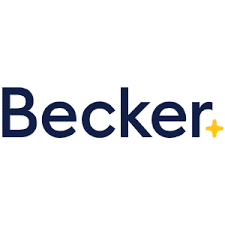When discussing strategies and insights for the CPA exam, each individual has their own unique experience. As you have most likely learned during college and while preparing for the CPA exam, time management is critical, both in regards to testing windows and in other aspects of life. Hence, if you don’t know the best strategy for scheduling all 4 CPA exam sections, you’re starting out at a massive disadvantage. So here’s a list of do’s and don’ts to help CPA candidates like you make the right scheduling decision and become a Certified Public Accountant!
See the Top CPA Review Courses
- Becker CPA Review Course ◄◄ #1 Rated CPA Prep Course of 2026
- Gleim CPA Review Course ◄◄ Most Practice Questions
- UWorld CPA Prep Course ◄◄ Best Video Lectures
- Surgent CPA Prep Course ◄◄ Best Adaptive Technology
- Lambers CPA Review Course ◄◄ Best Testing Software
Do: Determine Available Time to Study for the CPA

Before paying for the exams and starting your CPA examination application process, I would suggest evaluating your current commitments. You have to look at how much time you’ve allocated to both personal and professional endeavors. I am a fan of Microsoft Excel (I feel most accounting nerds are), so I made myself a week-to-week “Kickass CPA Study Schedule” and added every possible commitment I could think of. This included the time it would take to drive to work, my work schedule, personal plans for traveling, commitments with friends, and any downtime I wanted for myself. Having this extremely detailed calendar allowed me to be honest with the time I had available, and helped me determine where sacrifices would have to be made.
It is important to calculate a rough average of potential study hours you will have and can dedicate each week towards the exam. In my opinion, calculating a weekly average is preferred over a daily average because there are always unforeseen events and misjudgments of time that we cannot account for on a daily basis. Therefore, some days you may be lower than average and some days above, but the goal is to study as close to the weekly average as possible. That being said, procrastinating during your CPA studies is something you want to avoid at all costs.
Learn More About The CPA Exam
- The Ultimate Guide To The Audit Exam
- CPA Salary Guide: How Much Can You Make?
- CPA Exam Sections & Testing Windows
- 43 FAQ's for CPA's
- Top International Destinations to Take the CPA Exam
Don’t: Purchase All CPA Exams at Once
When I took the CPA exam, I paid for all four sections of the exam at one time. Unfortunately, it took me three years to pass all 4 CPA sections. Every person is different, but based on my experience and discussing with my colleagues, we reached a consensus: it is best to purchase one or two exam sections at a time.
Although there may be a discount if all sections of the exam are purchased at one time, the discount is meaningless if the testing window expires. For me, several tests expired before I could take them, and the cost to purchase additional tests was burdensome. Trust me though; the cost savings of scheduling all exam sections at once do not outweigh the cost of having an exam potentially expire. In addition, purchasing the tests individually will help with scheduling, as you do not have the added stress and pressure of trying to cram for all four sections before your testing window expires.
Do: Use a CPA Exam Review Course
Most of the CPA review courses available for CPA candidates come with a study schedule to help keep you on track. The issue with these, however, is that everyone has different times of availability. Therefore, I found it useful to take the schedule offered by the prep course and integrate it with the available time I had determined earlier. Additionally, consulting the National Association of State Boards of Accountancy (NASBA) for additional resources can help you cover all of the bases.
Don’t: Leave Too Much Time Between CPA Exams
As I mentioned, we cannot account for all variables with regard to life and scheduling—things will pop up and many circumstances are out of your control. Picking the best testing window for your exam can sometimes be difficult. I would allow a reasonable amount of time between tests scheduled but not too much. Determining the correct window is a difficult task; you need to choose one that is both realistic and still lights a fire under your behind.
Just remember to allow time for a possible change of test date. I rescheduled quite a few sections of the exam on my financial accounting journey. The benefit of doing so is that you get additional time if you’re unprepared. However, the ability to reschedule can also lead to procrastination, so be careful!
Remember, rescheduling should be used as a last-ditch option, not a crutch. If you’re not going to pass, then find a different time to take the exam. Otherwise, suck it up, turn in your Notice to Schedule, study as much as possible, and do your best.
Get The Best Discounts On Your CPA Review Course!

Take $1,600 Off UWorld CPA Elite-Unlimited Course

Extended Sale – $1,346 Off Becker CPA Pro+

Extended Sale – $1,345 Off Becker CPA Pro
Do: Pick Your Exam Order
This is one of the most important strategies to consider with regard to the CPA exams, especially with the scheduled changes to both the Regulation and BEC exam. Normally, I would advise taking a subject with which you are comfortable first. Some people like the motivation that comes after passing the first test, and taking a subject you know fairly well can help boost your testing esteem.
With the upcoming changes, I suggest taking both REG and BEC prior to the alterations. Both tests are gaining an hour of test time. Finishing before this occurs will save you both time taking the test as well as the time taken to study the additional material.
Check out some of my other CPA Study Tips if you need more help. Thanks for reading and good luck!




